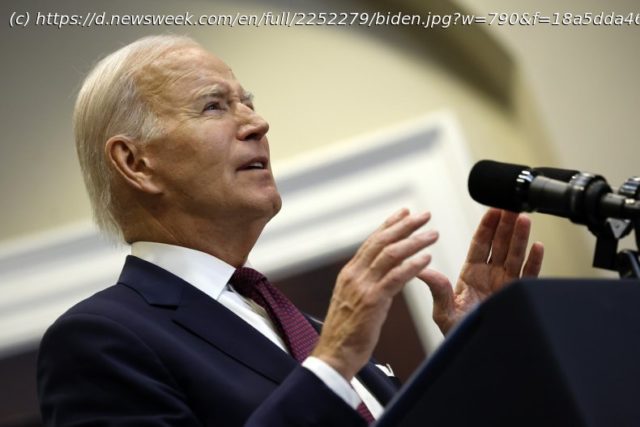„We cannot let this decision be the last word,“ the president told reporters, while the Trump campaign said, „This is a great day for America.“
President Joe Biden and Donald Trump had two very different responses to the Supreme Court’s decision ending race-based admissions at U.S. colleges and universities.
Speaking Thursday to reporters at the White House, Biden lambasted the Court for doing away with decades of legal precedent that supported the legality of such admissions—otherwise known as affirmative action—and said the ruling ignored generations of racial prejudice that persists today.
„We cannot let this decision be the last word,“ he said. „It cannot change what America stands for. America is an idea, an idea unique in the world. An idea of hope and opportunity. Of possibilities, of giving everyone a fair shot, of leaving no one behind. We’ve never fully lived up to it. But we’ve never walked away from it either. We will not walk away from it now.“
Trump, however, described the decision as a restoration of equity in U.S. higher education.
„This is a great day for America,“ the Trump campaign said in a statement. „People with extraordinary ability and everything else necessary for success, including future greatness for our Country, are finally being rewarded. This is the ruling everyone was waiting and hoping for and the result was amazing.“
The statement continued: „It will also keep us competitive with the rest of the world. Our greatest minds must be cherished and that’s what this wonderful day has brought. We’re going back to all merit-based—and that’s the way it should be!“
In the United States, affirmative action policies in the workplace date back to the advent of the civil rights movement. Many colleges and universities eventually began to adopt similar policies in an effort to increase minority enrollment following systemic inequities going back well before those applicants were born.
While critics argued that such policies might have resulted in a decline in merit-based admissions, affirmative action policies primarily worked to ensure an equitable number of students of color had access to the same education that more affluent and connected students enjoyed.
Start
United States
USA — Political Trump and Biden Had Very Different Responses to Affirmative Action Ruling






